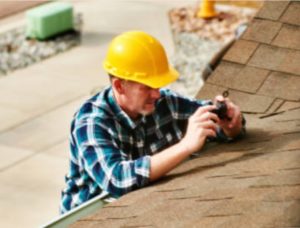Do these things before starting to look for your first home
Are you ready to buy your first home? Home shopping is fun and exciting, but it can also be overwhelming. Ideally, everyone wants an affordable home that they love, but there is more to that idea than many people realize.
Unfortunately, many first-time buyers unknowingly do things that can hold them back from purchasing, but the following 10 tips and strategies will help you be prepared for your home purchase without making some common mistakes that can derail the process. Read on, and get ready to see a sold sign on your first home!
- Know what you can afford
 What you feel comfortable paying and what a lender says you can afford are not always the same. Start with creating a budget (if you don’t already have one), and make a list of all of your monthly expenses including loan payments, car costs, insurance, groceries, etc. Do not include rent, as this will be replaced with your new mortgage payment. Remember to add expenses that occur yearly, such as insurance premiums. In general, you shouldn’t spend more than 30% of your gross monthly income on home-related costs and 40% on total debts, including your mortgage. To get the most accurate estimate of what your mortgage payment will be, use a mortgage calculator online and take into account current interest rates and local taxes.
What you feel comfortable paying and what a lender says you can afford are not always the same. Start with creating a budget (if you don’t already have one), and make a list of all of your monthly expenses including loan payments, car costs, insurance, groceries, etc. Do not include rent, as this will be replaced with your new mortgage payment. Remember to add expenses that occur yearly, such as insurance premiums. In general, you shouldn’t spend more than 30% of your gross monthly income on home-related costs and 40% on total debts, including your mortgage. To get the most accurate estimate of what your mortgage payment will be, use a mortgage calculator online and take into account current interest rates and local taxes.
After you’ve created your budget, search for homes in a price range you know you can afford. Try to avoid looking outside of your budget, or you will end up falling in love with a home you can’t afford. The last thing you want to do is stretch yourself beyond your means, as this can cause you financial stress or make you feel unhappy with homes in your price range. If the type or size of home you desire is not affordable, you can always hold off on purchasing to save a larger downpayment, work on bringing in more income or reducing your monthly expenses.
- Get a mortgage qualification
If you don’t get pre-approved for a loan before making an offer on a home, you could end signing a contract just to discover later that the bank won’t lend you the amount you need. Getting pre-approved for a loan gives you peace of mind knowing that you are shopping for homes you can actually purchase.
Be aware that your loan can fall through at any time after your pre-approval if you do anything to alter your credit score, such as taking out a new loan or defaulting on credit card payments. Hold off on financing new car until after you close on your home loan. If you end up losing your financing and the sale does not go through, you may end up forfeiting your earnest money, which is cash you put up when an offer is first accepted.
- Plan for future home ownership expenses
Homeowners always have additional expenses on top of their mortgage. You are responsible for insurance, property taxes and all home maintenance and repairs. Sometimes these repairs are large, such as needing a new roof, so keep this in mind. If you decide to purchase a condo, you may have home owners association fees that cover some common maintenance expenses, so this is a good thing to remember to budget for if you are thinking about a condo.
- Have realistic expectations – don’t be too picky!
Having a wish list is fantastic, but first-time home buyers frequently have to compromise due to funds. For example, you may have to accept living on a busy street in order to get an updated kitchen, or a home with a fantastic floor plan may need some renovating.
You can also try a different neighborhood or even a neighboring town. A home close to the lake may be out of your reach now, but a similar home in an area away from the lake may be right on budget.
- Research the area
 If you are very familiar with your town and all of the buying areas, you are one step ahead. But if you are moving somewhere less familiar, or your budget restricts your purchase to only a handful of neighborhoods, it’s important to do your homework. Refer back to your wish list – do you need a home in a town with public transit? Do you want to live close to a school? Since you should have already narrowed down your price range, keep your search to areas that meet these important needs.
If you are very familiar with your town and all of the buying areas, you are one step ahead. But if you are moving somewhere less familiar, or your budget restricts your purchase to only a handful of neighborhoods, it’s important to do your homework. Refer back to your wish list – do you need a home in a town with public transit? Do you want to live close to a school? Since you should have already narrowed down your price range, keep your search to areas that meet these important needs.
- Keep an open mind
If you find a home that has many of the qualities you desire but a few things you want to change, remember that you can always make upgrades when you can afford it. It might be worth compromising on esthetic features in order to get into a house you can afford. If the home meets your needs on the big things – like size and location – don’t be deterred by little things that can be changed later on. Besides, upgrading your home yourself can often save you money in the long run.
Sellers may make cosmetic fixes to attract more buyers at a higher price tag. If you wait to make improvements yourself, you are able to choose your own finishes instead of paying a premium on a remodeled home designed for someone else’s taste. Look for a home you can add value to in the future!
- Don’t sacrifice the important things
Write down the absolute must haves, and don’t cave – even if a house seems “perfect” initially. If you have four kids want them to each have their own bedroom, don’t buy a two-bedroom home. Along the same line, don’t buy a condo in order to save money if you hate sharing a wall with neighbors. You will most likely have to make a few compromises, but don’t compromise on the big things that will end up complicating your everyday life.
- Get a home inspection
 You don’t become a homeowner the minute an offer is accepted – there are some very important steps that can’t be missed. Before the sale closes, you want a professional inspection performed. You need to know the condition of the house below the surface so you don’t end up stuck with a money pit and a lot of costly repairs. Try to remove emotion from the purchase process as much as possible until you have a full picture of the home’s condition.
You don’t become a homeowner the minute an offer is accepted – there are some very important steps that can’t be missed. Before the sale closes, you want a professional inspection performed. You need to know the condition of the house below the surface so you don’t end up stuck with a money pit and a lot of costly repairs. Try to remove emotion from the purchase process as much as possible until you have a full picture of the home’s condition.
- Work with a realtor
When you are seriously ready to shop, start buy hiring a realtor. Real estate agents are held to certain ethics rules, and without having a professional to work in your best interest you could end up getting an unfair deal that only benefits the seller. Our Homes and Lakeshore team can help you find properties that may not be advertised in the way you are searching, and we are professional negotiators.
- Think ahead about your future
While the future can’t be perfectly predicted, you can help avoid surprises by considering your future lifestyle and the future of your prospective home’s neighborhood. Here are a few key questions you should ask yourself and ask your realtor about the property you are interested in:
- Will your family be expanding? Will you need more or less space in the next few years?
- Are there development plans in the works for the neighborhood, or will the street likely become a major thoroughfare?
- Have home values in the neighborhood increased or decreased?
 If you feel confident with the answers to these questions, then you may have just found a winner! While buying a first home can feel stressful, with the right steps and mindset you can have a pleasant experience. Be aware of the steps outlined above, and you can shop with confidence while protecting yourself from costly mistakes. A home might be the largest purchase you ever make, but it certainly does not have to be the most difficult.
If you feel confident with the answers to these questions, then you may have just found a winner! While buying a first home can feel stressful, with the right steps and mindset you can have a pleasant experience. Be aware of the steps outlined above, and you can shop with confidence while protecting yourself from costly mistakes. A home might be the largest purchase you ever make, but it certainly does not have to be the most difficult.


